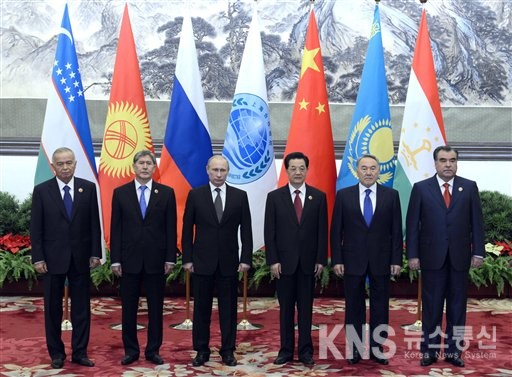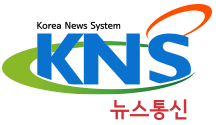
[베이징=AP/KNS뉴스통신] 2014년 미군 철수이후 러시아, 중국과 중앙아시아 국가들이 아프간의 안정에 상당한 기여를 할 것으로 7일 열린 상하이 협력기구에서 밝혀졌다.
이번 연례 회담에서 6개 회원국은 아프간의 안정을 주 의제로 토의하며 분리주의, 종교적 극단주의와 마약 밀매에 대항하는데 상호 협력하기로 합의했다.
후진타오 중국 주석은 7일 상하이 협력기구 국가에 경제발전과 협력증진을 위해 10억 달러를 지원하겠다고 밝혔다.
중국의 인민일보는 후 주석이 “지역 문제는 지역 내에서 해결해야 한다며 지역 외부로 부터의 충격에 주의해야 하고 아프간의 평화적 재건에 더 큰 역할을 해야한다”고 말한 것으로 보도했다.
이번 회담에서 미국의 철수이후 중국과 러시아가 아프간에서 중국의 막강한 경제력을 배경으로 미국의 영향력을 효과적으로 저지할 수 있을 것으로 관측된다.
류웨이민 중국 외교부 대변인은 6일 아프간의 발전은 이 지역의 안보와 안정에 직결돼 있다고 말하고 아프간이 상하이 협력기구의 옵서버 자격으로 참여하면 안보와 경제협력을 가속할 수 있다고 말했다.
(영어기사 원문)
Central Asia group seeks bigger Afghanistan role
BEIJING (AP) — Russia, China and Central Asian states meeting in Beijing this week say they want a significant role in stabilizing Afghanistan after most U.S. combat troops leave at the end of 2014, with Beijing's economic juggernaut leading the charge.
The war-torn nation's future is featuring prominently in discussions Thursday among leaders of the six nations that make up the Shanghai Cooperation Organization.
The bloc, meeting in China's capital for its annual summit, seeks closer security and economic ties among its members, most prominently through regular meetings and joint military exercises targeting separatists, religious extremists and drug traffickers.
Underscoring China's growing economic dominance in Central Asia, President Hu Jintao opened the summit Thursday by saying China would offer a $10 billion loan to support economic development and cooperation among SCO member states. No details were immediately given on how the money would be used.
In comments published Wednesday in the ruling Communist Party's flagship newspaper, the People's Daily, Hu outlined a broad plan for the SCO's future role as the region's pre-eminent grouping, while firmly rejecting outside meddling.
"We will continue to follow the concept that regional affairs should be managed by countries in the region, that we should guard against shocks from turbulence outside the region, and should play a bigger role in Afghanistan's peaceful reconstruction," Hu said.
How they plan to do so remains a question. The SCO has yet to declare a unified strategy on Afghanistan and shows little sign of filling the void left by the withdrawal of U.S. and other foreign forces.
Dominated by Russia and China, the SCO is widely seen as a useful foil to U.S. influence in Central Asia. On Wednesday, Russian President Vladimir Putin told China's vice president that the two countries were committed to boosting cooperation between their militaries.
The SCO is just one way in which warming ties between China and Russia have blunted U.S. dominance of global affairs and shielded Syria from international moves to halt its crackdown on a 15-month uprising. The official Xinhua News Agency said the sides issued a joint statement Wednesday reaffirming their position that the Syrian crisis should be resolved peacefully.
Chinese Foreign Ministry spokesman Liu Weimin told reporters Wednesday that the development of Afghanistan was "closely linked to security and stability" in the region, and that Afghanistan becoming an observer member of the SCO, as is expected to happen at the summit, will speed up security and economic cooperation.
Caption
Chinese President Hu Jintao, third right, stands with leaders of Central Asian nations, from left, Uzbekistan's President Islam Karimov, Kyrgyzstan's President Almazbek Sharshenovich Atambayev, Russian President Vladimir Putin, Hu, Kazakhstan's President Nursultan Nazarbayev and Tajikistan's President Emomali Rakhmon, for a group photo at the Great Hall of the People in Beijing Wednesday, June 6, 2012, at the start of the Shanghai Cooperation Organization summit. Central Asian states meeting in Beijing this week say they want a role in stabilizing Afghanistan after most U.S. combat troops leave at the end of 2014, with China's economic juggernaut leading the charge. (AP Photo/Mark Ralston, Pool)
김희광 기자 april4241@naver.com


